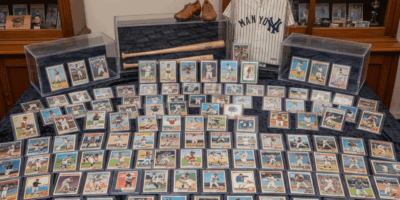Sports memorabilia as cultural icons has gotten complicated with all the market speculation overshadowing the emotional connections flying around. As someone who’s collected for the love of sports first and watched the market second, I learned everything there is to know about what makes this hobby meaningful. Today, I will share it all with you.
Beyond the Price Tag
That’s what makes memorabilia endearing to us true fans — these items represent moments, heroes, and memories. The market value is secondary to the emotional value.
A ticket stub from your first game might be worth $5. The memory it represents? Priceless.
Why We Collect
Probably should have led with this section, honestly. The real motivations behind sports collecting:
- Connection to heroes – Owning something linked to athletes we admire
- Preserving history – Being stewards of sports moments
- Nostalgia – Reconnecting with childhood and simpler times
- Community – Sharing passion with fellow collectors
- The hunt – Satisfaction of finding sought-after items
Cultural Significance
Sports memorabilia reflects broader culture:
- Cards from the 1950s show post-war optimism
- Integration-era items mark civil rights history
- Championship items capture communal joy
- Player artifacts connect generations of fans
The Family Connection
Collections often carry family meaning:
- Inherited cards from parents or grandparents
- Shared trips to card shows
- Teaching children about players and history
- Legacy items passed between generations
Collecting for Joy
The best collectors:
- Buy what they love, not what they think will appreciate
- Display and enjoy their items regularly
- Share stories behind their collections
- Connect with other enthusiasts
- Don’t stress over market fluctuations
The Perspective
Markets rise and fall. Card values fluctuate. But the joy of holding a piece of sports history — that stays constant.
Collect what moves you. The rest follows.



